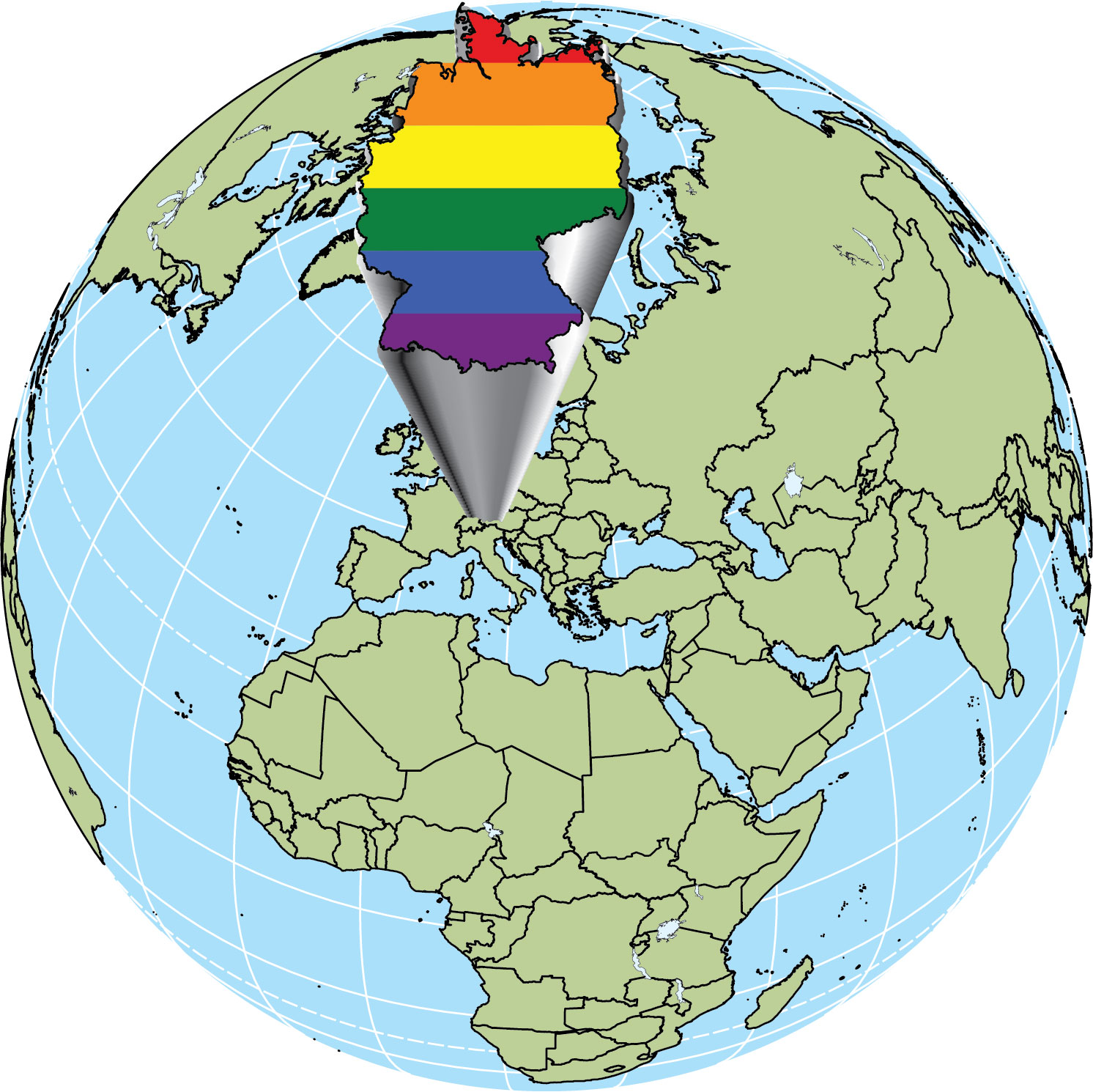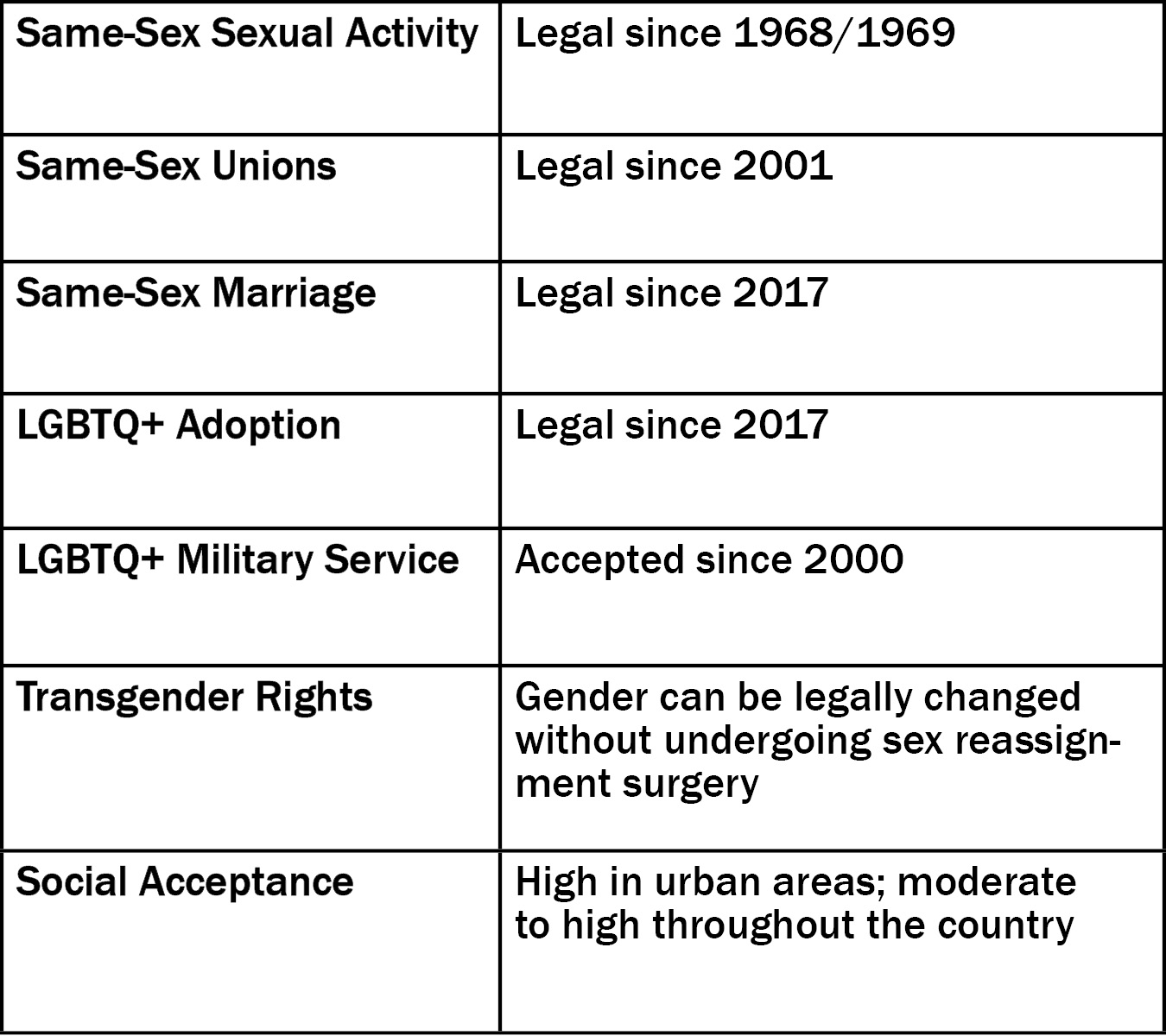LGBTQ: Legal and Cultural Status
Over the past few years, the LGBTQ+ community has been the beneficiary of a marked shift in global public opinion, with movement towards greater cultural acceptance and enhanced legal status. Nevertheless, views are not uniform across all countries.
In the most progressive countries, members of the LGBTQ+ community enjoy cultural acceptance, social freedoms, and full legal status. In the most restrictive countries, identifying as LGBTQ+ or engaging in same-sex acts is punishable by jail or death.
When preparing to travel abroad as a tourist or for business, members of the LGBTQ+ community should thoroughly research country-specific legal, cultural, and security issues prior to departure.
Understanding where a destination country falls on the spectrum of acceptance allows LGBTQ+ individuals to decide whether to travel to a given destination and to understand how to conduct themselves safely when they arrive.
Legal Facts
Same-Sex Sexual Activity
Germany’s penal code officially criminalized homosexual behavior under Paragraph 175. East Germany followed this penal code until 1968, at which point they adopted a new penal code and removed Paragraph 175, ending the persecution of LGBTQ+ individuals within the communist state. West Germany—which was beholden to much stronger religious influences—didn’t remove Paragraph 175 until 1969.
Same-Sex Unions
In 2001, Article One of the Act of 16 February, 2001, 266 established “registered life partnerships.” These legally recognized relationships allowed LGBTQ+ couples to achieve rights similar to married couples including rights regarding immigration, alimony, health insurance, inheritance, and name changes.
Same-Sex Marriage
Same-sex marriage was legalized in Germany in 2017 following the passage of Drucksache 18/6665. The law, once passed, added language to Article 1353 of Germany’s civil code which made clear that marriage may legally be between two people of opposite sex or the same sex. The bill, which had been introduced in November of 2015, became law on 20 July 2017.
Adoption
Once Article 1353 of Germany’s civil code had been changed to allow for same-sex marriages, same-sex adoption inherently became legal. Until then, registered same-sex couples were only able to adopt through “successive adoption,” where in one member of the relationship could legally adopt, and then their partner could later sign on as a second adoptive parent.
Military Service
Since 2000, the German military has officially given orders that it is a part of the duty of a German soldier to extend tolerance to all sexual orientations and transgender individuals. Official military policy states that engaging in sexual acts during service is considered a transgression, but private relations between military members are considered irrelevant. Discriminating against anyone of any rank for their sexual identity is considered a transgression within the German military.
Gender Identity Laws
Gesetz über die Änderung der Vornamen und die Feststellung der Geschlechtszugehörigkeit in besonderen Fällen is a German law from 1980 which allowed German citizens to legally change their gender so long as they could prove they had undergone gender reassignment surgery. In 2011, Germany’s Federal Constitutional Court deemed that law unconstitutional, effectively allowing German citizens to change their gender without showing proof of surgery.
Anti-Discrimination Laws
On June 29, 2006, Germany passed a law called Allgemeines Gleichbehandlungsgesetz (General Act on Equal Treatment.) The law works across the board to ban discrimination based on sexual orientation and gender identity in health services, education, employment, and the provision of goods and services.
Cultural Considerations
Public Opinion
Polls suggest that more than 90 percent of German citizens believe that LGBTQ+ individuals should be accepted by society, and that a similar number believe same-sex marriage is acceptable. However, more than half of LGBTQ+ individuals in Germany still report facing discrimination or violence because of their identity.
Public Displays of Affection
In Germany, casual displays of affection, including hugging and holding hands, is common among couples no matter their sexual orientation or gender identity. More intimate displays of affection, including kissing, are frowned upon no matter the couple engaging in the act. Germans tend to be reserved when it comes to public displays of affection, favoring handshakes to hugs or other more intimate greetings.
Opinions on Cohabitation
The majority of German citizens are comfortable with LGBTQ+ couples living private lives, and there are no widespread opinions condemning the cohabitation of these couples.
Consistency of Opinions
Germany is fairly consistent when it comes to the opinions of individuals toward the LGBTQ+ community. However, there are rural areas of Germany where more religious and conservative communities may be less welcoming.
Article written for World Trade Press by Taylor Holloran.
Copyright © 1993—2025 World Trade Press. All rights reserved.

 Germany
Germany 


